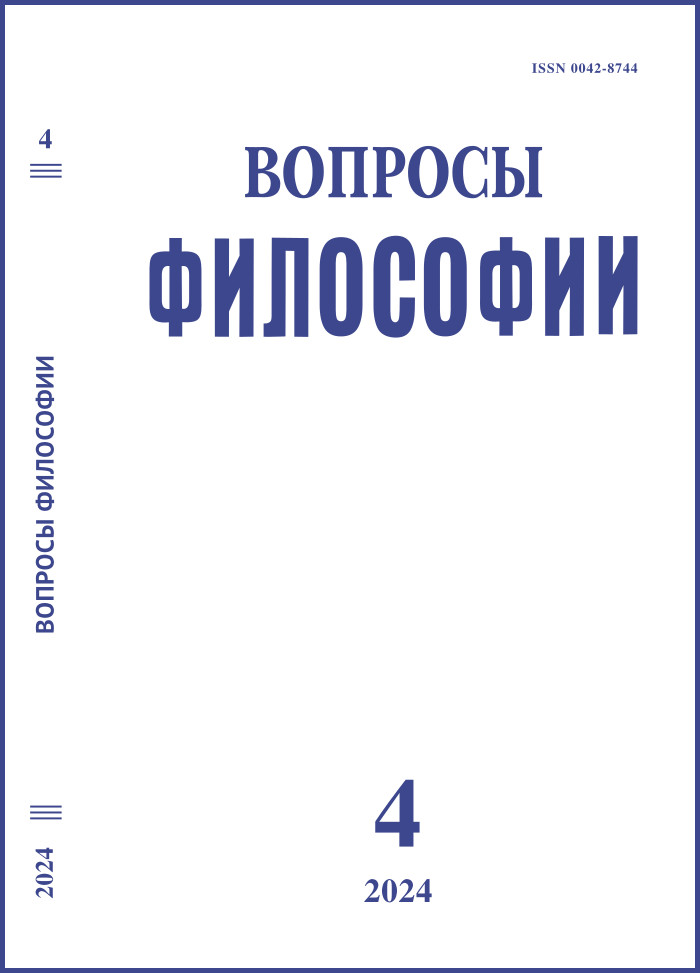Object-Oriented Ontology by Graham Harman as a Project to Overcome Correlationism
DOI:
https://doi.org/10.21146/0042-8744-2024-4-86-96Keywords:
Graham Harman, object-oriented ontology, correlationism, philosophy of access, thing-in-itself.Abstract
The article analyzes the concept of Graham Harman, who is working on the creation of an object-oriented ontology. Harman sets himself the task of overcoming correlationism, which is understood as a type of philosophizing that defines the relationship (correlation) between man and the world as the only object of study.
We must agree that the criticism of correlationism is necessary, since correlationism narrows the field of philosophical work and does not clarify the conditions of its own functioning. Harman’s arguments against correlationism are discussed and the conclusion is made that OOO rightly demands the restoration of the idea of a thing as such. However, Harman absolutely incorrectly presents his concept of the “object” as a substitute for the Kantian “thing in itself”. We also criticize Harman’s idea of the “flat ontology” for the fact that it presupposes the existence of objects (real, fictional and created) with an equal degree of reality, due to the completely unreasonable extrapolation of human relationship with the world to all things. The result of Harman’s attempt to overcome correlationism is the strengthening of correlationism. From which we conclude that the object-oriented overcoming of correlationism is completely inconsistent. A detailed analysis fails to reveal at least one clearly substantiated proposition of Harman’s concept. In our opinion, correlationism cannot be overcome, but it must be fought. To do this, ontology should shift its attention to reality itself, which affects the subject in everyday life. Harman unjustifiably denies the figure of the subject, since its restoration contributes to a decrease in correlation, while the elimination of the subject, on the contrary, leads to the risk of hypertrophy of correlationism.

